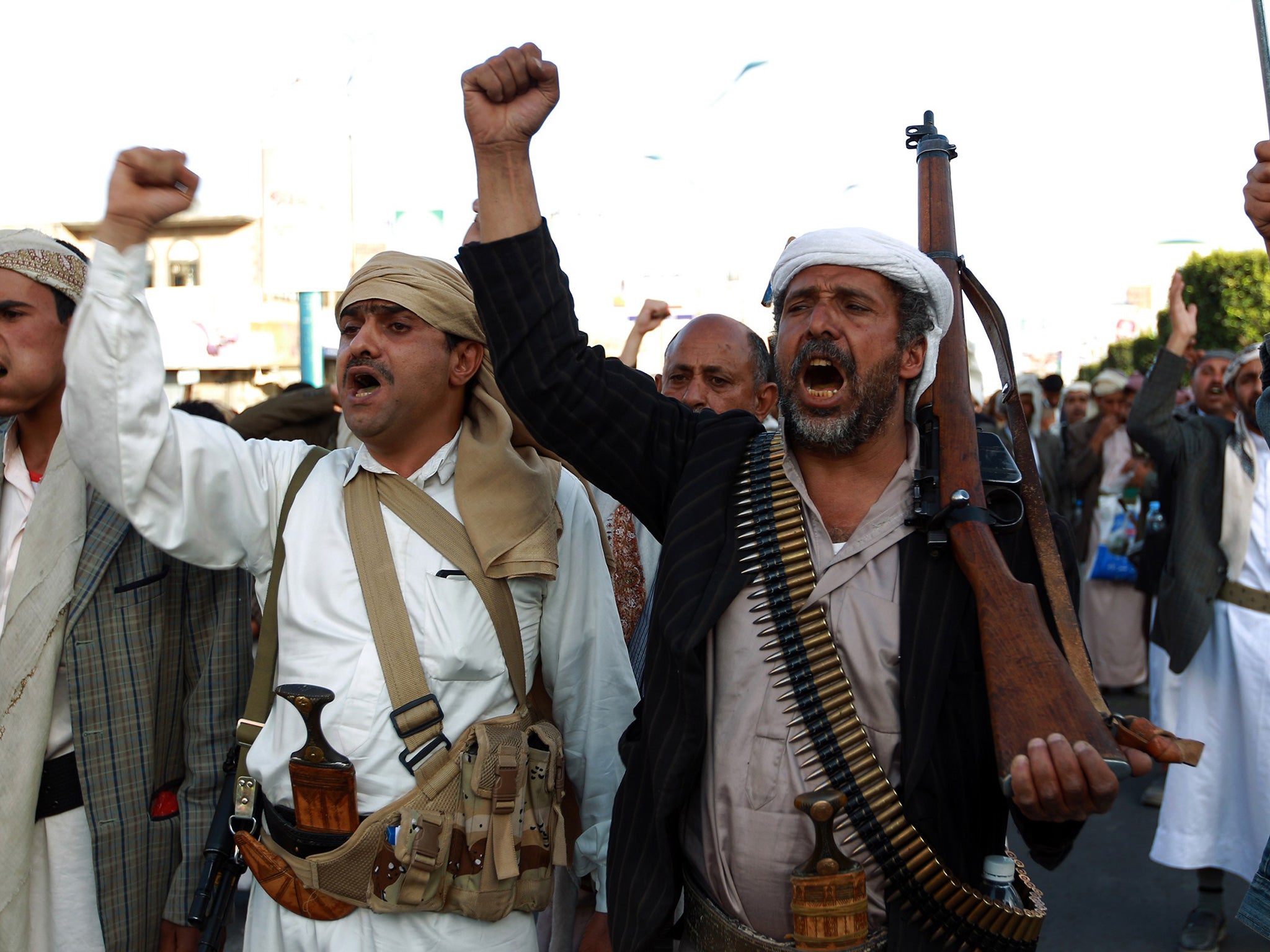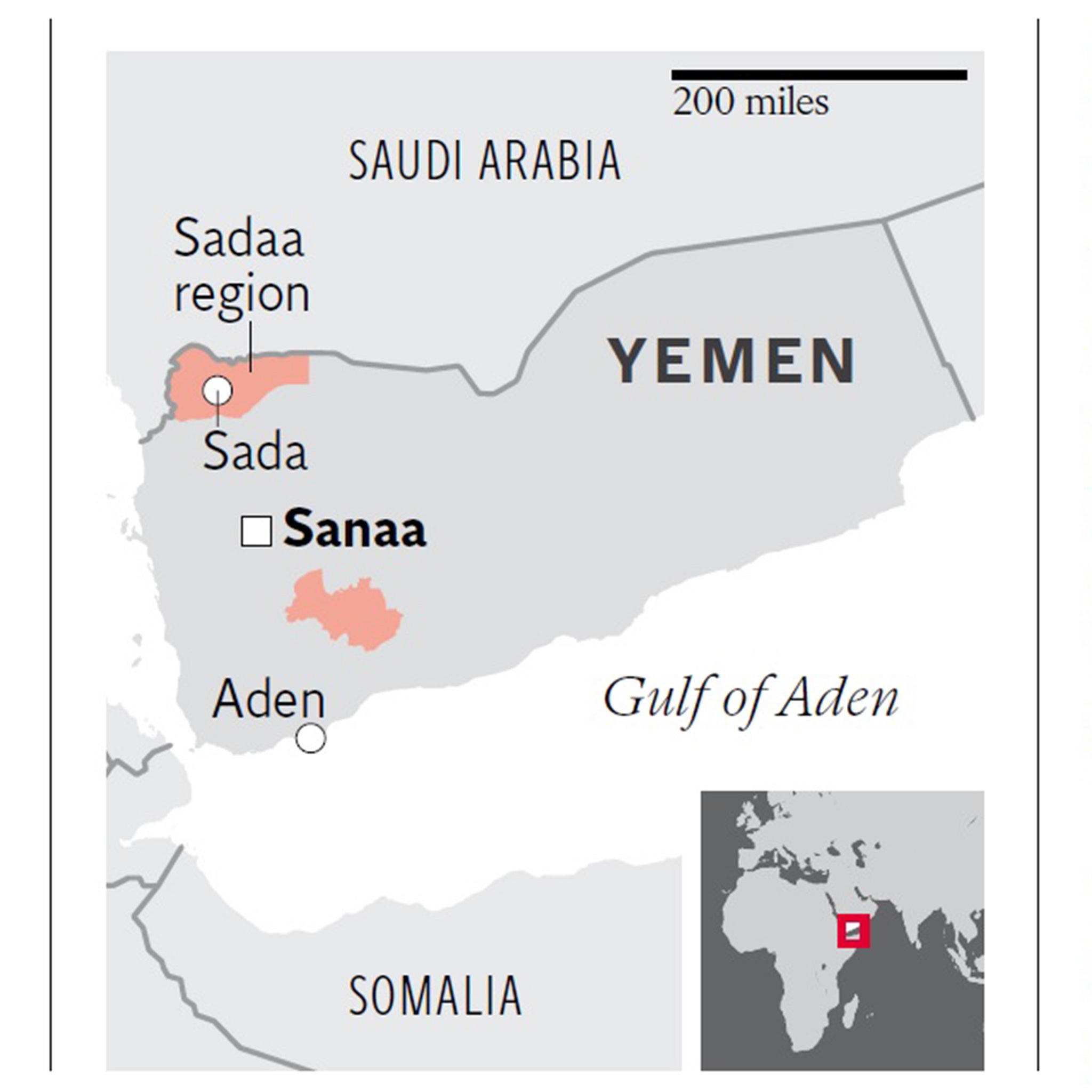Houthis come down from mountains to fill Yemen's power vacuum
Attempts to crush rebels only made them stronger

Your support helps us to tell the story
From reproductive rights to climate change to Big Tech, The Independent is on the ground when the story is developing. Whether it's investigating the financials of Elon Musk's pro-Trump PAC or producing our latest documentary, 'The A Word', which shines a light on the American women fighting for reproductive rights, we know how important it is to parse out the facts from the messaging.
At such a critical moment in US history, we need reporters on the ground. Your donation allows us to keep sending journalists to speak to both sides of the story.
The Independent is trusted by Americans across the entire political spectrum. And unlike many other quality news outlets, we choose not to lock Americans out of our reporting and analysis with paywalls. We believe quality journalism should be available to everyone, paid for by those who can afford it.
Your support makes all the difference.In the cave, bodies of three men are buried under rubble, their graves marked by photographs and flowers.
They were military leaders, the victims of an attack in 2004 at the start of six successive wars intended to quell the revolutionary fervour of the Houthi militia in the Saada northern region of Yemen.
Eleven years later, the Houthi are effectively in power in the capital, after forcing out President Abd-Rabbu Mansour Hadi last month. The years of war galvanised the Houthis, who have risen from a mountain militia to the nation’s de facto leaders.
The Houthis, a collection of rebels from the country’s northern region, are members of the Zaydi branch of Shia Islam. The leader from whom they take their name, Hussein Badr al-Din al-Houthi, had taken shelter with his military leaders in that cave in 2004, and was captured and killed.

Instead of crushing the Houthis, the government had created a martyr of their leader. The cave is now a shrine. “This is a new Karbala,” says Dayf Allah Al Shami, a senior Houthi, referring to the ancient battle that is one of the defining moments in Shia history.
The Houthis started out as a band of ideological anti-imperalists, opposed to America, Israel and the corruption of the 33-year rule of President Ali Abdullah Saleh. Their slogan – “God is great. Death to America. Death to Israel. God curse the Jews. Victory for Islam” – echoes the days of Iran’s Ayatollah Khomeni.
Mr Saleh’s six-year war entrenched a sense of victimhood among the Houthis. Umm Zaid guides a BBC Arabic documentary team around a makeshift cemetery in her garden, where three children were killed during a seven-month siege. “When we came to them they were in shreds,” she says. “Their mother arrived and had to pick up the pieces. She couldn’t find their faces.”
The Houthis’ path to power was set with the 2011 protests that ousted Saleh and the vacuum that followed. Mr Hadi, Mr Saleh’s predecessor, fled the capital last month. The Houthis have since set up checkpoints around the capital, Sanaa, patrolling the streets with their own security forces, but they have refused to take the reins of power fully.
On an unannounced visit to the Ministry of Finance, Abdul Illah, a member of the Houthi revolutionary committee, glides through checkpoints, pointing out the Houthi security forces inside. “Things have changed in the country, Mr Jamal. You can’t tell us what to do. The days of dictatorship are over,” deputy minister Jamal al Maliki is told in his office, before being forced to sign a document ordering a corruption investigation.
In coming down from the mountains, the Houthis have entered a much bigger game of regional and global geopolitics. Opposed by the Saudis in the north, they deny receiving funding from Iran. Their rule is strongly opposed by Yemen’s al-Qaeda faction, whose stronghold lies to the south of the country. The struggle for power has entrenched sectarian identities in a country where, for centuries, religious factions had prayed and lived together. The fear among ordinary Yemenis is that they are now on the path to civil war. In the words of one man in the country’s capital: “We are threatened by both the Houthis and the terrorists.”
'The Rise of the Houthis' , made by Safa Al-Ahmad for BBC Arabic, is broadcast on BBC World today at 9.10am and 8.10pm
Join our commenting forum
Join thought-provoking conversations, follow other Independent readers and see their replies
Comments